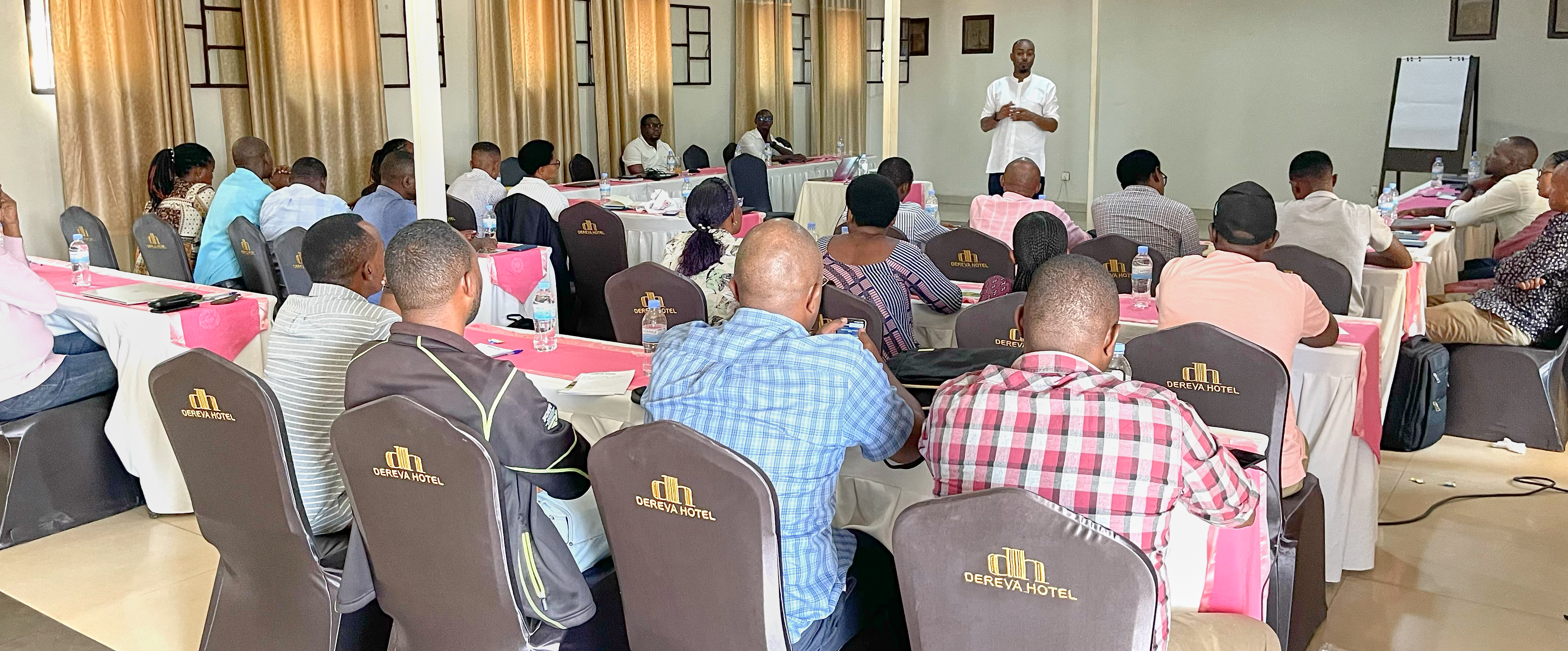
TRAINING: Ifakara scientists conduct workshop on Upgraded MosquitoDB 4.0 in Rwanda

From August 7th to 9th, 2024, the Data Science and Mathematical Modelling team at Ifakara Health Institute (IHI), a program funded by the Gates Foundation, conducted a training workshop with the National Malaria Control Program of Rwanda Biomedical Centre (RBC), on the upgraded version of MosquitoDB—a surveillance system designed for entry and management of entomology surveillance data.
For the past two years, Rwanda has utilized MosquitoDB to manage its routine entomological data nationwide, with implementation supported by various partners including the Presidential Malaria Initiative (PMI) and the Global Fund.
MosquitoDB, accessible via www.mosquitodb.io, was developed at IHI and is currently managed by the Data Science and Mathematical Modelling Team at IHI, a program funded by the Gates Foundation".
This tool is designed to support National Malaria Control Programs (NMCPs) and research projects by providing real-time data for informed decision-making for both field and laboratory data sets. IHI offers technical support to any National Malaria Program interested in adapting MosquitoDB.
The training was led by Dr. Samson Kiware, Principal Research Scientist, and Mr. James Michael, Research Scientist from the Data Science and Modelling Team, in collaboration with RBC's trainers, Dr. Emmanuel HAKIZIMANA, Director of Vector Control, and Elias NIYITUMA, Coordinator of the Entomology Laboratory. The workshop brought together entomology technicians from all 12 sentinel sites across Rwanda, team leaders of insecticide resistance monitoring and central vector control teams.
Participants were guided through key system components, including project creation and sharing, offline and online data collection, and generating visualizations from the collected data. The team also provided technical support on data analysis and presented key entomological indicators on the dashboard for prompt decisions.
To reinforce the skills learned in the classroom, a follow-up training session was conducted at several sentinel sites. The overall goal was to enhance the technicians' capacity for efficient and accurate data collection, ultimately improving decision-making processes using the upgraded version of MosquitoDB.
MosquitoDB, a “Game Changer”
In his opening remarks, Dr. Emmanuel HAKIZIMANA, Director of Vector Control at the RBC, emphasized the significance of MosquitoDB, calling it a “game changer” in the management of entomological data in Rwanda and beyond. He highlighted that the system is crucial not only for malaria but also for managing vector-borne diseases in general. He also underscored the importance of MosquitoDB’s ability to capture data related to human behavior and environmental factors, and the system’s ability to link to epidemiological and meteorological databases.
Strengthening collaboration
Dr. Samson Kiware, head of the Data Science & Mathematical Modelling team at Ifakara, expressed his gratitude to the RBC for their continued support and collaboration in advancing the system to its current state. He emphasized the importance of further strengthening this long-standing partnership and appreciated that the team from Rwanda has expressed their willingness to share their experiences and champion the implementation of MosquitoDB in other countries.
Message from the Program Manager
Dr. Aimable MBITUYUMUREMYI, RBC Malaria Program Manager, acknowledged the support from IHI and other partners in implementing MosquitoDB. He noted that MosquitoDB will be instrumental in monitoring the quality and the impact of vector control interventions and expressed his appreciation for the ability to have on time access to entomological data directly through an interactive dashboard.
He also emphasized the importance of expanding this initiative into an integrated surveillance system, integrated Vector Management, and thus ensuring that community-level teams and leaders are equipped with comprehensive malaria systems to make real-time decisions for effective management of mosquito-borne diseases, particularly malaria.
